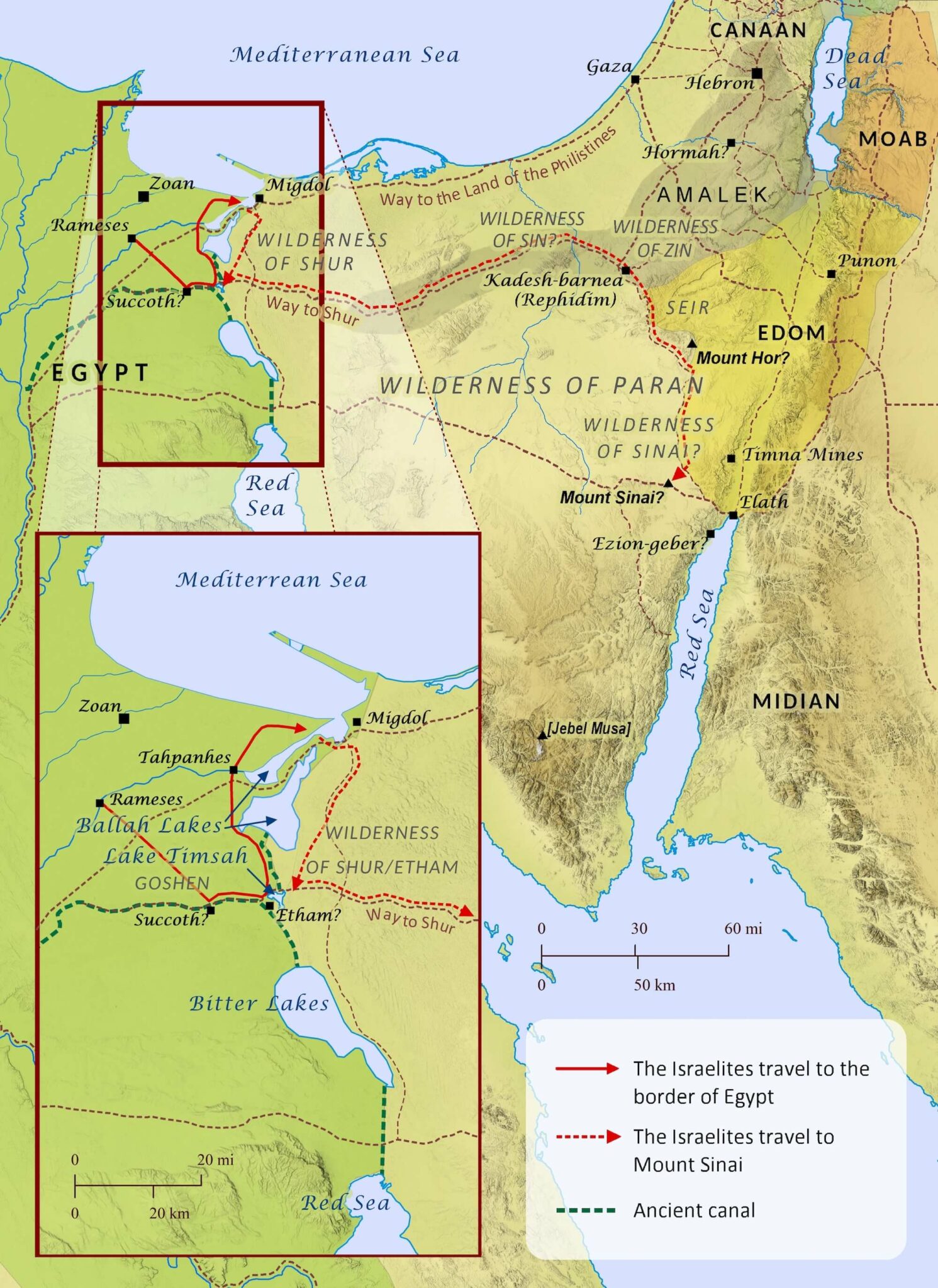The prologue to the giving of the ten “words” identifies the Sovereign and His qualifications for establishing the rules in the covenant. It serves as the basis for what follows.
The account begins when God spoke all these words, saying. The word “God” is the Hebrew word “elohim,” used in Genesis to refer to God as the Creator of all things. It is used here to refer to the sovereign at the beginning of the passage. It connects the Ten Commandments to the creation in Genesis 1 because it was “God” (“elohim”) who created them. The fact that it is God who is speaking these commandments means that they were not the invention of Moses or any other human. God created His Law just as He created all other things, including principalities and powers (Colossians 1:16).
Following the pattern of the suzerain-vassal treaty, a common treaty format in that time, Exodus 20:1-2 contains both the preamble and the prologue. The preamble not only identifies the Suzerain God who initiates the covenant, but it also identifies the vassals as “you.” Thus, the Suzerain is the LORD and the vassals are Israel (I am the LORD your God).
The prologue recounts the past relationship between the Suzerain God and His vassals (Israel). God is the One Who brought them out of the land of Egypt, out of the house of slavery.
Notice that the Scriptures do not call these words (the commandments which Moses is about to explain)the “Ten Commandments.” Consistently, they are called the “Ten Words” (Exodus 34:28; Deuteronomy 4:13). The Septuagint (LXX, the Greek translation of the Old Testament) uses the same terms “ten words” (deka logoi). In English, they are referred to as the “Decalogue.” However the title of “Ten Commandments” is appropriately descriptive since they are given in the form of commands (imperatives).
The Sovereign (Suzerain) also declared that I am the Lord your God. The word “LORD” is the Hebrew word “Yahweh” (also known as “Jehovah”) and stresses His existence, His presence, and His covenant relationship with humans. This LORD was also the One who brought you out of the land of Egypt, out of the house of slavery. Thus, the LORD was the Deliverer of the Israelites who defeated the powerful Egyptians and freed the Israelites from slavery.
The LORD here described Himself as the Israelites’ Deliverer. The fact that He was their creator as well as their Deliverer gave Him the authority to set down rules that would govern their relationship to Him and to their fellow Israelites.
The statement I am the LORD your God emphasizes the Lord as Israel’s Suzerain, since the name LORD (Yahweh) emphasizes His covenant relationship. Yahweh is the one who enters into a relationship with His people and thus He is their Ruler or Suzerain. Yahweh is Israel’s God because they have agreed upon the terms of His covenant (Exodus 19:8). However, He is also God, who created all things. It is therefore a given that God has the power to deliver as well as to enforce the covenant.
Biblical Text
1 Then God spoke all these words, saying,
2 “I am the Lord your God, who brought you out of the land of Egypt, out of the house of slavery.
Check out our other commentaries:
-
Genesis 23:10-11 meaning
Ephron heard Abraham’s offer and replies that he is willing to give the land, including the cave, to Abraham for free....... -
What is Hell? Gehenna and the Outer Darkness meaning
Gehenna and the Outer Darkness are cultural illustrations that describe the shame-filled, bitter, sorrowful experience of a believer in Jesus at his judgment if he...... -
Romans 10:14-17 meaning
Paul states an obvious point, that we can’t believe something that we have never heard. But it is also the case that we can hear...... -
Romans 16:6-8 meaning
Paul continues listing believers who have served Christ well. He wants the Roman believers to greet them. Likely these believers would be primary allies to...... -
Deuteronomy 9:22-24 meaning
Moses outlines other instances of Israel’s rebellion and the adverse consequences brought by the disobedience to exhort this generation to follow God wholly.......




